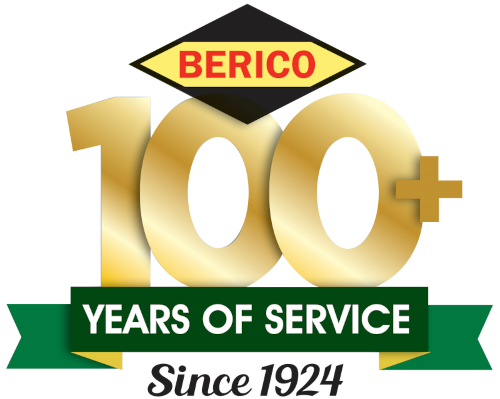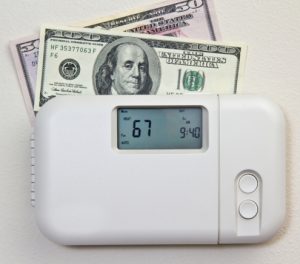Six Tips on How to Lower Your Utility Bills
There is never a bad time to save money. Whether the economy is going strong or in a recession, it’s always smart to cut back where you can in order to leave more money in the bank at the end of each month. This article will look at some simple steps you can take to cut back on utility spending for your home. Even modest savings can add up in a big way by the end of the year.
If you need reliable AC service in Greensboro, turn to Berico for help. As one of the leading HVAC companies in the area, Berico can provide HVAC installation, AC repair, regular maintenance, and much more.
1 – Consistently Change Your Air Filter
This is one of those cases where you need to spend a little bit of money to save more money in the long run. It’s important to regularly change the air filter in your HVAC system because a fresh filter allows your system to perform at its optimal level. When the filter gets dirty, airflow through the system is reduced, and it does not perform as well. In other words, the HVAC system winds up using more energy than necessary to achieve the desired level of heating or cooling. Keep up with changing out the filter and you’ll keep your system running as cost effectively as possible.
2 – Smart Programming
It’s important to set the program that controls your HVAC system so that it accurately mirrors the realities of your life. If the thermostat is set to cool the home down in the summer when you are at work, you might want to consider having it run a little less cool when you know no one will be home. Check on the timing of your program each time the seasons change to make sure your current plan makes sense for your lifestyle and the schedule of everyone in the home.
3- Replace Old Appliances
Our “test-everything-and-record-the-results” friends at Consumer Reports have the data that shows that replacing your old appliances with newer more efficient ones is a great way to lower your utility bills. And there is an added bonus that it can also reduce greenhouse gases.
For Example; Newer Energy Star washing machines use 25 percent less energy and up to 75 percent less water than machines that are just 20 years old according to Consumer Reports. And while we are on the topic of replacing appliances, your HVAC system is your largest appliance and if it has some age on it, replacing it might reduce your energy consumption considerably. If you want to have it evaluated
4 – Be flexible with a little higher and lower temperature
You might be tempted to crank your thermostat way down into the 60s on a scorching hot summer day, but that’s just asking to spend a ton of money on energy. As a good rule of thumb, don’t ask your air conditioner to bring the indoor temperature down more than 20 degrees lower than the temperature outside. So, if it’s going to be 95* outside, set your thermostat in the mid-70s and you should still be quite comfortable.
5 – Annual Maintenance Matters
Here is another point where it’s important to spend some money to help your system work well and run efficiently. Call in a team like Berico for an annual maintenance visit to keep your equipment running properly and avoid the kind of inefficiency that can lead to mounting utility bills. Also, keeping up with annual maintenance should help your equipment last longer, which is another way to save money in the long run.
6 – Manage Your Vents
Whether you are running the cooling system in the summer or the heat in the winter, pay attention to the position of your vents to avoid wasting air on rooms that aren’t being used. For instance, if you have an extra bedroom or two in your house that are not regularly used, close the vents and don’t bother cooling them day after day. This will allow your system to conserve energy while still properly serving the parts of the house that are actively used. You generally don’t want to shut off the vents to more than one or two rooms because it can create problems for the system if too many vents are closed. So while shutting off one or two is OK, closing more than that is not recommended.


 It’s the homeowner’s biggest fear: HVAC replacement. Whether your system unexpectedly quit on a hot summer day or your latest inspection by your HVAC technician did not bring good news, the most common question is always about HVAC cost.
It’s the homeowner’s biggest fear: HVAC replacement. Whether your system unexpectedly quit on a hot summer day or your latest inspection by your HVAC technician did not bring good news, the most common question is always about HVAC cost.